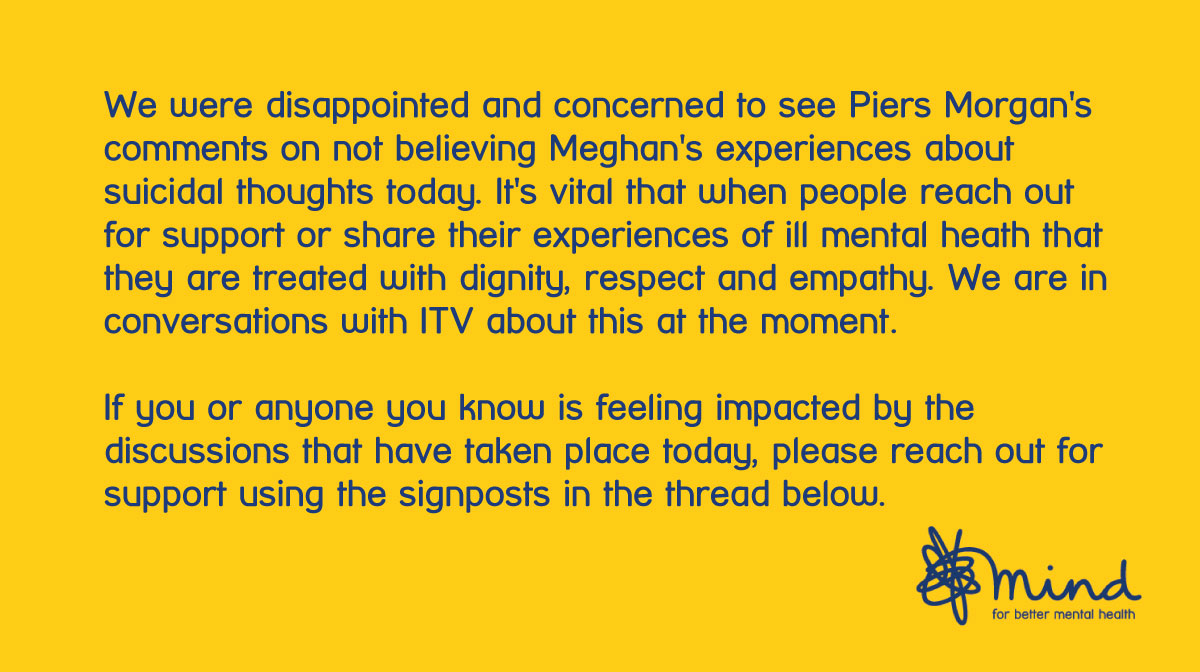
Trigger warning: self-harm.
Today is #SelfInjuryAwarenessDay. If there's someone in your life who self-harms, and you're not sure what to say or do, these tips might help: a thread. #SIAD (1/12)
Today is #SelfInjuryAwarenessDay. If there's someone in your life who self-harms, and you're not sure what to say or do, these tips might help: a thread. #SIAD (1/12)
Try not to panic or overreact. The way you respond will have an impact on how much they open up to you and other people about their self-harm in the future. (2/12)
Try not to judge. (3/12)
Let them know you're there for them. (4/12)
Relate to them as a whole person, not just their self-harm. (5/12)
Try to have empathy and understanding about what they're doing. (6/12)
Let them be in control of their decisions. (7/12)
Offer to help them find support. (8/12)
Remind them of their positive qualities and things they do well. (9/12)
Try to have honest communication, where you take responsibility for any fears you have. (10/12)
Supporting someone who is self-harming can be a long process with many ups and downs. Remember to take care of yourself – this will mean you can stay involved for longer and keep well. (11/12)
For more advice and support for coping with self-harm, visit our website: bit.ly/2VjDSqX (12/12)
• • •
Missing some Tweet in this thread? You can try to
force a refresh








